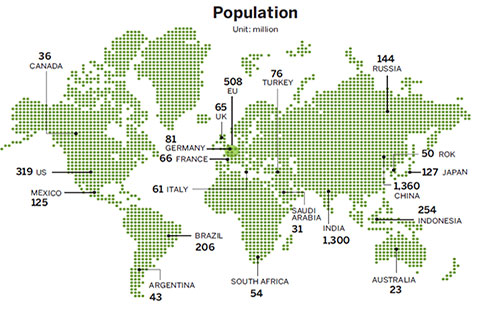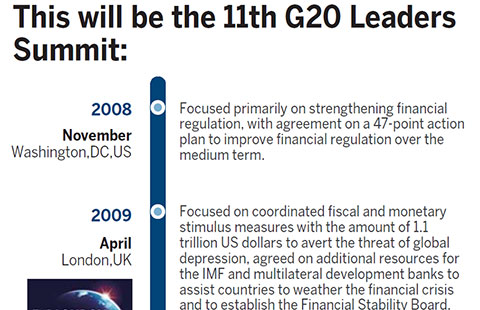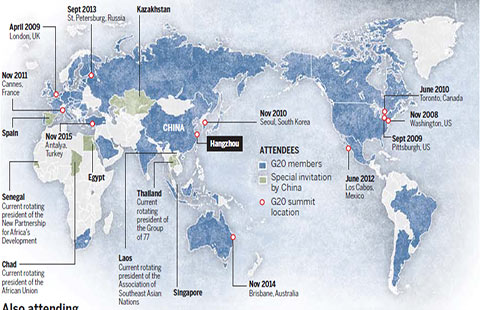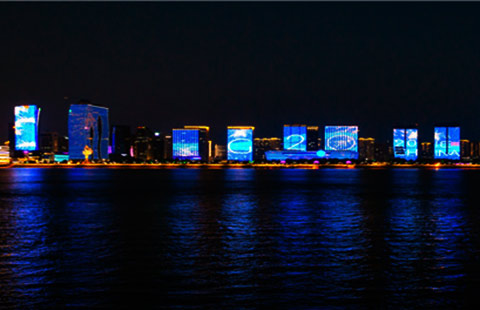Hangzhou abuzz over bike sharing
By Chen Mengwei (China Daily) Updated: 2016-09-01 10:31
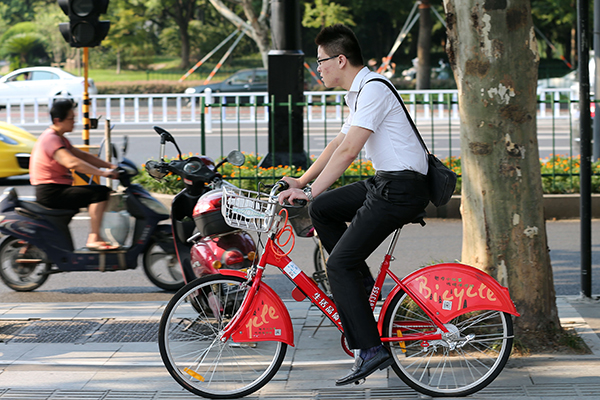 |
|
A Hangzhou resident uses a public bike to commute. [Photo/China Daily] |
A week ahead of the G20 Summit in Hangzhou, East China's Zhejiang province, a bike-sharing service moved a step closer to embracing the mobile internet era by enabling anyone with a smartphone to rent a bike by simply scanning a QR code.
Many people say that Hangzhou is a city where you can survive with only a cell phone-everything can be paid for via mobile payment apps, including Alipay or WeChat Pay. Starting from Sunday, people have one less thing to worry about, with the scanning of a QR code enabling access to free biking almost anywhere in the city.
An official app can be downloaded, but even without one, you will be fine, as long as you have the WeChat app on your phone, which has almost become a must-have for anyone living in China.
For now, 100 stations around the West Lake area have been upgraded to enable mobile renting, but more are to follow. First-time users only need to scan the QR code beside the bike, register via text message, pay a refundable deposit of 500 yuan ($75) and start riding, according to Tao Xuejun, general manager of Hangzhou Public Bicycle Service.
As one of China's first cities to promote modern bike-sharing services back in 2008, Hangzhou is renowned globally and has been ranked by international news media outlets such as the BBC and USA Today as the most friendly city for bike sharing.
As of May, Hangzhou had 84,100 public bikes at 3,572 stations around the city. In populated areas surrounding West Lake, a station can be easily found every 500 meters or so. On average, 310,000 people use the service on a daily basis, with the peak daily volume reaching 448,600, according to official statistics.
For those who have not rented a bike in Hangzhou before, the first hour is free of charge. The second hour costs 1 yuan and the third hour 2 yuan. Each hour beyond that costs 3 yuan.
If you return a bike within one hour, say after 59 minutes, then re-rent it, you get another free hour. This process can be repeated without limit-a local secret that any Hangzhou dama (female senior citizen) will be eager to share with you.
At least 80 million yuan was spent on maintaining the rental bikes last year, Tao said, and the figure is destined to increase as more bikes are introduced. But the company has managed to strike a balance by selling advertisements and kept its promise of "spending no taxpayers' money".
For international visitors or those who prefer using traditional cards, a valid passport and about 300 yuan-including a 200-yuan deposit, 20-yuan card fee and 80-yuan transport credit-is more than enough for a traffic pass.
With that, you can ride not only bikes but also buses, subways, ferries and taxis. In addition, when you get off one bus and transfer to another, it is free. The trick is, if you ride a bike after getting off any bus, you get 90 minutes riding time free of charge.
- C China city raises down payment to rein in housing price
- China to toughen regulation on online ads
- China's role in the G20 and China-ROK cooperation
- Change of setting yielded Shanghai Communique
- China's listed SMEs report steady H1 revenue growth
- How China can better play its role as a global responsible power?
- Kenyan bank mulls introduction of Chinese yuan trading into S Sudan
- Chinese listed SOEs yield reform dividends in H1

